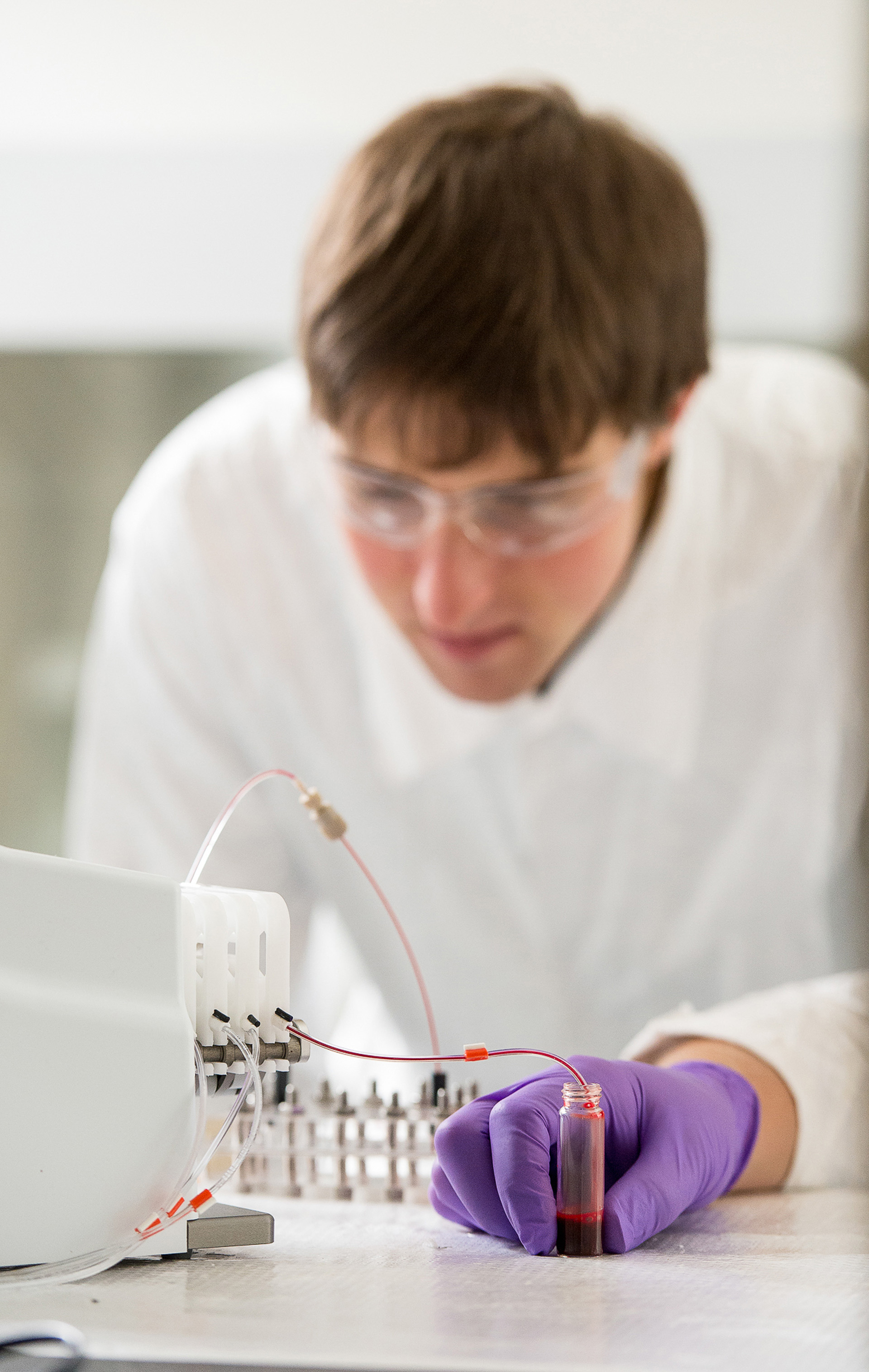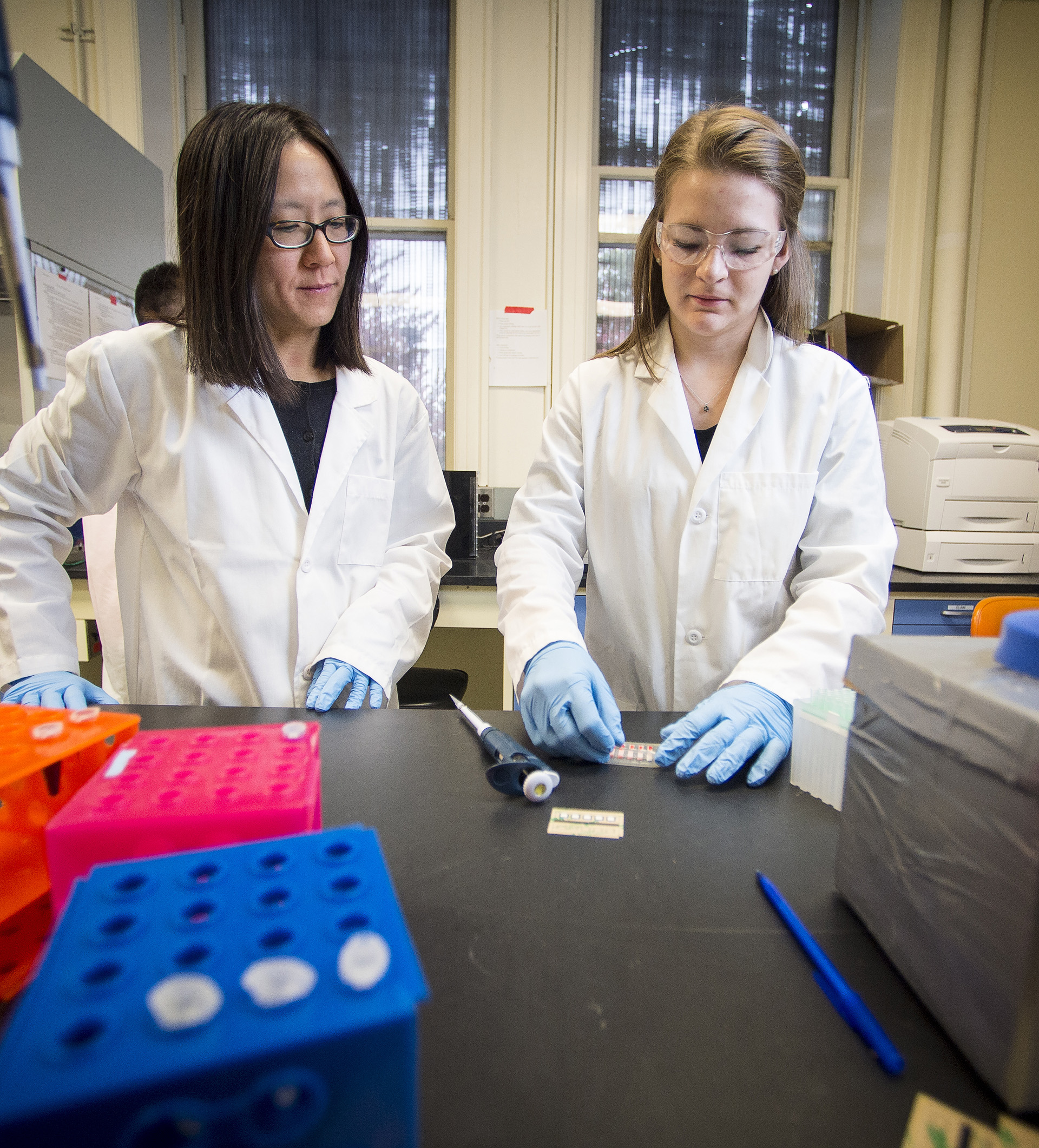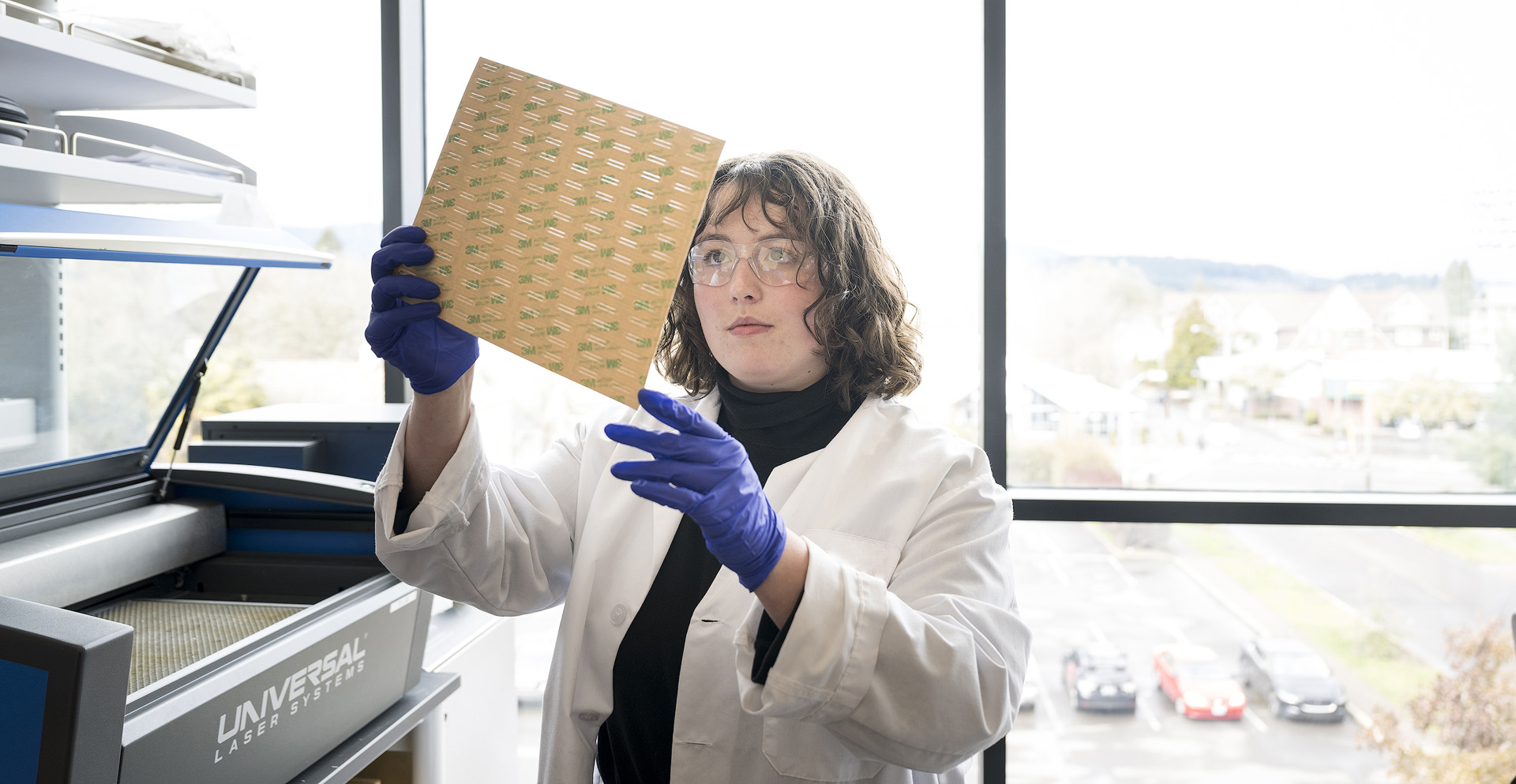Bioengineering
Creating solutions for living systems

Better health through engineering
The bioengineering program at Oregon State is a leader in creating innovative health solutions. Our interdisciplinary faculty work to advance sustainable health solutions while addressing global health challenges.
With a unique partnership with Oregon Health & Science University and the University of Oregon, our impact on human health is amplified statewide. Our goal is to train the next generation of engineers who are inspired to tackle real-world health challenges.
Degree Types
Locations
Corvallis
Our Faculty
Explore our faculty's expertise and research.
Contact our industry relations team to discuss partnerships and other opportunities.
Research Areas
Our faculty and students pursue research to advance an understanding of biological systems and to create innovative, impactful solutions that address pressing healthcare challenges.
Health Equity Engineering
Addressing gynecological cancers and diseases, investigating sex-specific differences in osteoarthritis pathogenesis, creating healthcare solutions that are accessible to the socioeconomically disadvantaged
Biomaterials & Tissue Engineering
Bioactive and biocompatible surface coatings, advanced surface analysis, nanomaterials, 3D cell culture systems, cryopreservation, cell mechanics and signaling
Machine Learning & Computational Biology
Biological systems modeling, immune system modeling, mapping and modeling of gene regulatory networks, machine learning for health applications
Biomedical Devices and Instrumentation
Biosensors, microfluidics, biomedical device design and manufacturing, biological signal processing, medical robotics, point of care diagnostics
Biomechanics, Orthopedics, & Neuroengineering
Rehabilitation engineering, links between sleep, pain and osteoarthritis, spine orthopedics
Innovative Minds & Cutting-Edge Breakthroughs

Pushing the boundaries of modern medicine
Bioengineers work to create new and better methods for improving human health, from paper-based diagnostic tests to 3D-printed artificial organs.
- Tissue engineering and modeling
- Medical device design
- Diagnostics and therapeutics
- Drug discovery
- Cryopreservation

AI-assisted, non-invasive method to improve epilepsy care
Elain Fu, professor of bioengineering, uses saliva to make a personalized-medicine breakthrough for people with epilepsy.
Degree Types
Locations
Corvallis
Our Faculty
Explore our faculty's expertise and research.
Get in Touch
Partnerships
Contact our industry relations team to discuss partnerships and other opportunities.
Oregon universities' bioengineering partnership

Strength Through Collaboration
OSU, UO, and OHSU have combined strengths to enhance our statewide reputation and impact in the applied sciences by leveraging state of the art facilities and infrastructure on all three campuses


